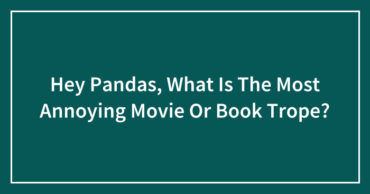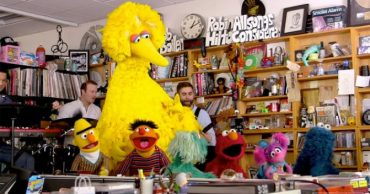You might have noticed that every episode of Echo starts off with a brand-new black-and-white Marvel Spotlight banner. And accompanying the banner is a more subtle fanfare that swaps out the usual Marvel Studios intro. The music for the new intro is composed by none other than Michael Giacchino, the musical genius behind the previous Marvel Studios fanfare as well as the Doctor Strange theme.
The Marvel Spotlight is a new label for MCU projects that don’t require any prior knowledge of the MCU. The banner is inspired by the Marvel Comics anthology series of the same name, which was used as a sort of testing book to debut new characters. The successful ones were then added to the main continuity. Now, the Spotlight banner may sound similar to DC’s Elseworlds, but the difference is that these Spotlight projects are still part of the MCU canon. They may not require previous watching, but they will be part of the MCU lore, the characters may show up in future MCU projects, and the events of these Spotlight projects can impact future MCU movies and shows.
Why Marvel Introduced the Spotlight Banner?
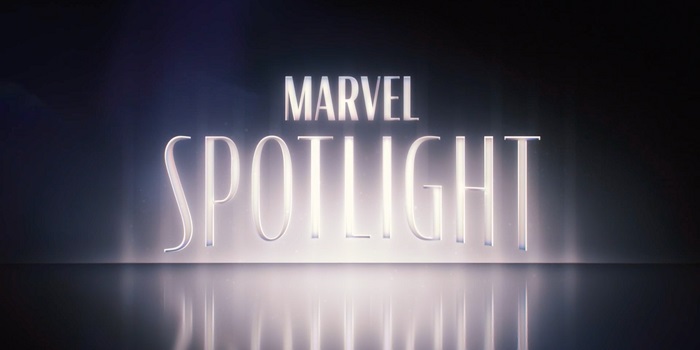
The MCU has been growing bigger and more complex with each phase. Phases 1-3, known as the Infinity Saga, had a total watch time of 49 hours and 56 minutes. But Phase 4 alone has a greater watch time than all the three phases combined, running in at a total watch time of 50 hours and 21 minutes! It is also important to note that Phases 1-3 were spread over 11 years, while everything in Phase 4 was released in just two years. Many fans have complained that the MCU has become too convoluted and confusing, especially with the introduction of the multiverse and the Disney+ shows.
Some of these shows, such as Secret Invasion and She-Hulk: Attorney at Law, were not generally well-received by critics and audiences, but fans still had to watch them to keep up with the MCU storyline. And with the release of Echo, Marvel also confirmed that all the Netflix shows like Daredevil and The Defenders are now canon, bumping the watch time even higher. Every new movie and show spawned a series of YouTube videos and articles like “Everything You Need to Watch Before Ant-Man and the Wasp: Quantumania.” For some fans, watching the MCU started feeling more like homework than entertainment. That’s why Marvel created Spotlight, a new sub-category of the MCU that focuses on characters and their personal journeys.
Spotlight gives the general audiences a jumping-in point to experience new heroes and genres without knowing much about the rest of the MCU, and it can introduce the MCU to a whole new demographic. Take She-Hulk, for example. It was a fairly decent sitcom, but it did not resonate with the MCU fans who wanted more action and spectacle. It also alienated the sitcom fans who did not care about the MCU references. She-Hulk would have worked better as a Spotlight sitcom, with a lower budget and a simpler plot. It would have catered to the audience who liked the humor and the heart of the show, and it might have received more praise.
Does Echo Really Count as a Spotlight Show?
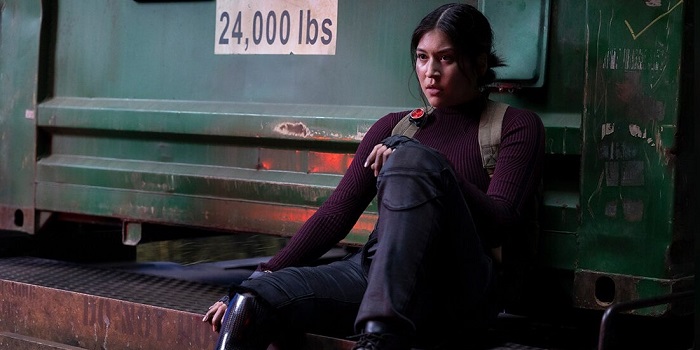
Marvel chose to kick off the Spotlight banner with Echo, but is Echo really the best fit for Marvel Spotlight? It is heavily connected to the events and characters of the MCU in big ways. First off, Maya (Alaqua Cox) is a character that first appeared in Hawkeye, and Echo follows the plotline that started in Hawkeye when Maya shoots Kingpin (Vincent D’Onofrio) in the eye. And then there’s also Daredevil (Charlie Cox), who only shows up for a bit. But to someone watching the show without any previous knowledge of the MCU, it’d be weird why there’s a dude in a red costume with sticks fighting Maya, and then doesn’t show up for the rest of the season. Kingpin also has a deep history on the Netflix Daredevil show, which is now canon, and it adds a whole new aspect of grief and rage to Vincent D’Onofrio’s portrayal of the villain.
Although Echo begins with flashbacks explaining what’s important and expository dialogue to fill in the gaps, it still doesn’t make sense for Echo to be the first Spotlight show. It does require previous watching just as much as Loki or Ms. Marvel, if not more. Plus, Echo sets up a major MCU project — Daredevil: Born Again. It’d make more sense if Moon Knight or Werewolf by Night were the first Spotlight shows. They work perfectly as standalone projects, do not connect to the MCU storyline in any big ways, and do not set up any MCU projects either.
The Spotlight Banner May Do More Harm Than Good to the MCU
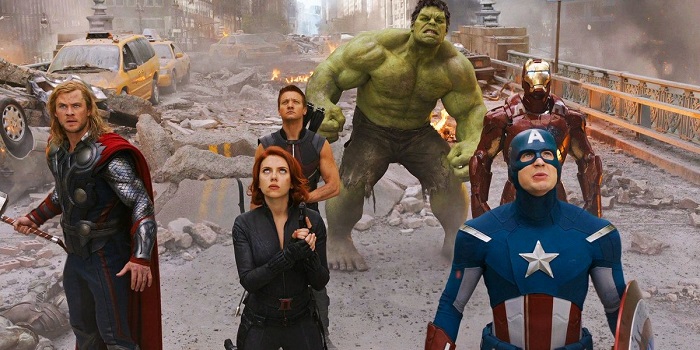
As we have highlighted above, Spotlight can make it easier for new audiences to engage with Marvel, as well as serve as a testing slate for new projects without trying to tie them into an increasingly convoluted narrative. If they work, they can be added later into non-Spotlight projects and team-up movies. However, Marvel’s biggest problem right now is quantity over quality. Pumping out content at breakneck speed has resulted in rushed productions with subpar writing and underwhelming visuals. And Spotlight doesn’t fix this problem. If anything, it adds fuel to the already burning fire in the MCU.
If Marvel starts working on more shows that no one’s asked for, they’ll just end up stretching limited resources even thinner, leading to even more projects suffering from budget constraints and tight deadlines. Perhaps it’d be better if the Spotlight projects weren’t canon, but they are, which means the hardcore fans will still feel obligated to watch these standalone entries — even if they’re uninterested — just in case some obscure plot point pops up in an Avengers movie later. And then there’s also the fact that Marvel has spent the last 15 years conditioning fans to expect that everything in the MCU is interconnected. That is what made the MCU so special.
People knew that Thor losing his hammer in Thor: Ragnarok or Tony and Steve falling out in Captain America: Civil War would have huge consequences for Infinity War and Endgame. But one of the biggest complaints with Phases 4 and 5 has been that the MCU feels disconnected, without an overarching plot. Phases 4-6 are the Multiverse Saga, but only seven out of the 26 movies and shows even mentioned the multiverse. The Spotlight shows will only add to this problem. The jury’s still out on Marvel Spotlight. While it certainly opens MCU up to new fans, it also carries the risk of further diluting the interconnectedness that made the franchise so compelling for years. Find out if Echo was a success for the Marvel Spotlight banner.
 Follow Us
Follow Us

